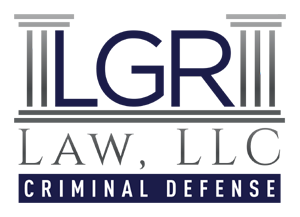On June 26, 2024, the Supreme Court issued its opinion in Snyder v. United States, holding that a federal anti-corruption statute, 18 U.S.C. § 666(a)(1)(B), does not criminalize gratuities given to public officials as a token of appreciation for taking an official act. Rather, the statute criminalizes only quid pro quo style bribery. Michael Snyder, a former mayor, was charged under this statute in the District Court because he accepted a $13,000 check as a gratuity in connection with two truck contracts that he awarded to a local trucking business worth over $5,000 each. Snyder filed a motion to dismiss arguing that he was not guilty because the statute did not criminalize gratuities, only bribes. Because there was no evidence that he took a bribe—in other words, there was no payment or agreed upon payment between Mr. Snyder and the trucking business before he awarded the two trucking contracts—he could not be found guilty under the statute. Mr. Snyder was convicted and sentenced to 1 year and 9 months in prison.
The Seventh Circuit affirmed his conviction and ruled that 18 U.S.C. § 666(a)(1)(B) encompasses both quid pro quo arrangements and gratuities. SCOTUS reversed the Seventh Circuit and adopted Snyder’s argument that a gratuity, without proof of a prior quid pro quo, is not criminal under the statute. Based on the Supreme Court’s recent jurisprudence surrounding anti-corruption statutes, this was an expected outcome from the current bench. See Percoco v. U.S. 598 U.S. __ (2023) (reversing a conspiracy to commit honest-services wire fraud conviction of Governor Cuomo’s former associate, holding that the jury instructions given did not adequately define the scope of “the intangible right of honest services”) ; Ciminelli v. U.S., 598 U.S. __ (2023) (reversing a wire fraud conviction of Governor Cuomo’s former associate, holding that the federal fraud statutes criminalize only schemes to deprive people of traditional property interests and do not apply to intangible interests); Kelly v. U.S., 590 U.S. __ (2020) (reversing wire fraud convictions of Governor Chris Christie’s former aides that were connected to the Bridgegate Scandal because the scheme did not aim to obtain money or property); McDonnell v. United States, 579 U.S. 550 (2016) (reversing a Hobbs Act extortion conviction of the former Virginia Governor, holding that under the Hobbs Act, an official act must involve a formal exercise of government power to further a specific objective and it must consist of more than setting up a meeting, hosting an event, or making a phone call); Skilling v. U.S., 561 U.S. 358 (2010) (holding that bribes or kickbacks are the only situations in which the honest services doctrine may apply to prohibit the use of mails or wire to further fraudulent schemes). The Supreme Court has been chipping away at anti-corruption law. Snyder is a huge win for the defense bar, and its holding significantly narrows the scope of conduct that federal prosecutors can charge as criminal under 18 U.S.C. § 666(a)(1)(B).
We here at LGR Law, LLC make it our business to stay on top of the developments in the laws in federal crimes. We are experienced federal criminal defense attorneys with experience in defending federal bribe and extortion charges. We also represent people charged or threatened with SEC fraud charges. If you or a loved one are charged or threatened with a federal bribe or extortion crime, contact us immediately. We will fight for your rights and protect your freedom.



0 Comments